- Home
- Andre Gonzalez
Insanity (Insanity Series, Book 1)
Insanity (Insanity Series, Book 1) Read online
Andre Gonzalez
Insanity
First published by Andre Gonzalez in 2017
Copyright © Andre Gonzalez, 2017
All rights reserved. No part of this publication may be reproduced, stored, or transmitted in any form or by any means, electronic, mechanical, photocopying, recording, scanning, or otherwise without written permission from the publisher. It is illegal to copy this book, post it to a website, or distribute it by any other means without permission.
First Edition
ISBN: 9780997754834 | 9780997754834
This book was professionally typeset on Reedsy
Find out more at reedsy.com
Also by Andre Gonzalez
The Burden (Insanity #2) - Coming Summer 2018
A Poisoned Mind - free at www.andregonzalez.net
Followed Home - available on Amazon and BN.com
This is dedicated to anyone that has had their life forever changed by a mass shooting. As a survivor of the Aurora movie theater shooting, I found much therapy in writing this book as a way to let out the fear and tension that can be held in after such tragedy. Let us always remember those lives lost for no reason.
"So when you find yourself locked onto an unpleasant train of thought, heading for the places in your past where the screaming is unbearable, remember there's always madness. Madness is the emergency exit." -The Joker, Batman: The Killing Joke
1
Prologue
March 11th, 2016. 8 p.m.
The prior twelve hours had passed in a blur for Jeremy Heston. All he could remember was blood everywhere, even on the pale skin of his arm. He could hear the TV in the other room describing the scene he had left behind.
He woke with no idea what time it was or how long he had been asleep. His ride to the police station felt like years ago; in fact, it had only been ten hours. He was in a cell with blank gray walls and no window, a stiff cot and steel toilet. A barred door provided the only glimpse to the outside world, and he could see an officer sitting at a messy desk, glued to the TV.
Jeremy lay on his cot, staring dully at the ceiling, the brown waves of his grown-out hair serving as his only pillow. His usual brown eyes bulged from his sockets, but with a tint of red spread about, making him think his sleep was nowhere near the quality he preferred. Some dipshit reporter kept saying his name, along with some astronomical numbers that couldn’t be right.
It needed to happen. So many more will be saved if this all goes right. He recalled a vague memory of arriving at the police station. He’d never forget the way the sun beat down on him just before they pulled him into the station, not knowing if he would ever see it again as a free man. His body ached all over, and he lifted his blood-splattered shirt to see a nasty bruise starting to form in his right armpit from the rapid firing of his rifle. Feels like Mohammed fucking Ali punched me a few dozen times.
He drifted, as if in and out of a cloud. A carousel of police officers stopped by his cell, some to see Jeremy and some to change their uniforms in the nearby locker room. A few were drenched in blood from head to toe.
Only one officer spoke to Jeremy, a stocky Mexican man with a thick scar across his cheek, which would be forever burned into Jeremy’s memory.
He had walked out of the locker room, and as he passed by Jeremy he said,“You’re gonna rot in hell for this, you piece of shit.” The cop’s face quivered as he spoke.
Jeremy noticed the officer’s severe limp as he hobbled away like a penguin, barking at some other cops to “Get the fucking press out of here!”
Suddenly memories from Jeremy’s childhood rushed his mind in a blur, but everything was covered in blood, all that goddamn blood. Even with all his planning, he forgot to anticipate the blood.
As he lay on his cot, staring at the buzzing lights on the ceiling, his mind felt clear for the first time in months. He felt in control—and, actually, relieved. The experiment was officially live and there was no turning back. Months had gone into his preparation and now the show would start.
I’m a step ahead of the game, he thought. It’s like having the answers for a test the night before.
He knew the jury would be so appalled, they would have no choice but to call him a lunatic.
He couldn’t help but smile as the tight grasp of sleep took hold of him. All the sound around him, all the commotion and shuffling footsteps, was nothing but white noise. It gave him an odd sense of comfort.
Everything will be okay.
2
November 2008
Jeremy’s story started at Bears Field, home of the Denver Bears Baseball Club, not on the field but in the team’s call center. Jeremy started his tenure with the Bears answering phones. It had come as a shock that the call center was not in the elegant front office, but tucked in the back corner, hidden from society. There were no fancy tables, no lounge chairs, no flat-screen TVs, not even any windows to see the light of day.
Behind the rows of desks, the manager’s office was elevated above the floor, enclosed with glass walls so that they could keep an eye on the worker bees. All this for a position that barely paid enough to keep the lights on.
The room was a crescent shape, allowing all sound to carry into the manager’s office, often prompting employees to send a text message to their desk neighbor instead of speaking out loud.
The job was Jeremy’s first exposure to corporate shenanigans. With no experience at the ripe age of eighteen, he entered with the simple intention of trying to befriend everyone. No bad blood meant no one would fuck you over later. Ambitious for a kid out of high school—some would say naïve—but he knew that he wanted to work as a psychologist in professional sports and thought the best way to achieve it would be to get everyone on his side.
The turnover rate was high, so Jeremy saw many people come and leave the call center, mostly a mixture of retirees looking for free baseball tickets and college students looking for a flexible schedule. And free baseball tickets.
Despite the revolving door of new faces every month, friendships developed, even some that would stand the test of time, lasting long after the call center vanished from his rearview mirror.
Lewis Hamilton connected with Jeremy the instant they met. At sixty-eight, Lewis was one of the retirees working for free tickets (and a Major League Baseball pension he liked to brag about). Their friendship seemed unlikely: Lewis was a sassy old black man and Jeremy was a teenager who grew up in a middle-class suburb of Denver. But they found common ground in sports, politics, and their overall outlook on life.
Even though he wouldn’t be able to legally enter a casino for three more years, Lewis took Jeremy to some casual poker games hosted at local bars; Lewis helped him get into the bars, usually having some sort of connection. The two planned to go to Las Vegas for his twenty-first birthday.
“Poker, alcohol, and women,” Lewis said. “That’s all you need in life, and Vegas has all three.”
They played and watched poker on TV together, always wanting to learn how to perfect the craft of the game.
“People that think this is a game of luck should be taken out back and shot,” Jeremy said, and Lewis agreed.
“But you can’t shoot them—they’re the best ones to play against. Let them sit there and wait to get lucky,” Lewis said, and they laughed.
They played heads-up for hours, discussing life and current events. In his almost seventy years of life, Lewis had accumulated quite the vault of stories. Jeremy learned over time that if you worked in the call center long enough, you would learn Lewis’s stories to the point of being able to tell them yourself. He was like a parrot thirsting for new people to talk to, to share his stories with.
> As the friendship grew, so did their hunger for the poker tables. By the time he turned twenty Jeremy had won multiple bar games, which mainly paid out in free bar tabs that he gifted to Lewis. At the virtual felts online, he could play for actual money. His obsession swelled as he played online tournaments every night. He started with a twenty-dollar deposit and turned it into two hundred by the end of the first week.
The Bears had a policy that prevented part-time employees from working more than 1,200 hours within a calendar year, to avoid providing health benefits; the Harvey brothers loved to take care of their staff. The working-hours restriction meant that every call center employee lived below the poverty line. This didn’t present as big of a problem for the retirees like Lewis as it did for the college students trying to make an actual living.
Baseball tickets couldn’t pay the rent, but poker could. Jeremy enjoyed a heater of a month of June, winning more than four thousand dollars thanks to a couple of online tournament victories. He stashed the money in savings to cover rent for the next six months, leaving his paychecks to be used for entertainment—and more poker, of course.
He had read about kids his age that had dropped out of college to pursue a career in poker, traveling the world to play in different circuits. The thought crossed his mind, but worry about what his family would say swayed him to keeping the cards as a side gig. Life as a professional gambler would have to wait.
For the next year, he shifted his focus to school and tried to work his way up the ladder with the Bears. He was busy with classes three days a week, homework every night, and work every other day.
On top of that, Jeremy couldn’t resist a game: he attended seventy out of the eighty home games his first season. With a paycheck that vanished into rent and food, his budget left no room for entertainment besides the free games. He lived at Bears Field that first year, rotating through friends and family to join him at the games. Once word got out, Jeremy discovered he had more “friends” than he realized. People usually bought him dinner as a thank you. Free baseball and food, I was living like a king.
His year-end review rolled around. “We’re very impressed with your performance this season,” his manager, Sammy, told him from across his desk.
His review was the first time he had sat down in the fishbowl office with the doors closed. The room had a musty smell, like old newspapers collected over decades. The tile of its elevated floor had stains and scuffs as old as the stadium.
“We love your passion, and I personally am grateful to have you as a resource for the rest of the team,” Sammy continued.
Jeremy never could get a good read on Sammy, though he seemed like a decent man with good intentions for his employees. Some days he came in groggy and everyone knew to stay out of his way. Other days, his clothes looked wrinkled, his pants too tight, his hair a mess. But he kept his chin up, and Jeremy respected him for that.
“What do I need to do to move up in the organization?” Jeremy asked.
“The best thing you can do is talk to different people,” Sammy responded. “At the end of the day it’s about who you know.”
Jeremy mulled this over, realizing he’d rarely spoken to anyone outside of the ticketing department. His goal of becoming the team’s psychologist would take some ass-kissing, starting with the club’s general manager, Christopher Dowd.
“How’d it go?” Lewis whispered when Jeremy returned to his desk. They had recently been assigned desks next to each other.
Jeremy grinned and gave a thumbs-up, knowing Sammy could hear everything. He returned to his homework, which he worked on between calls. In his Psych class they were discussing mental illness, a topic that interested Jeremy as he had a family member that suffered from schizophrenia.
His father never spoke of Jeremy’s great-grandfather, who had been locked up in an insane asylum in the early 1900s. Jeremy knew he had killed someone, and then claimed to be an English spy sent to the United States on a mission to destroy any possible threats to England. Great Grandpa Heston had never even visited England, and doctors diagnosed him as a paranoid schizophrenic. The family had disowned poor old Louis Heston and left him to rot away the rest of his years in a small padded room.
Jeremy was well aware of the general disconnection that plagued his entire family and couldn’t help but wonder if his great-grandfather’s disease had some sort of shaming effect on those that followed. At the very least, he hoped to gain a better understanding of the disease from his many psychology courses planned for the next four years.
3
October 2009
A year later, Jeremy finally had his much-anticipated meeting with Chris Dowd. The busy general manager had set aside a half hour to chat with Jeremy, inviting him up to his office. Jeremy had never ventured up to the second floor, where the big wigs had their offices.
Jeremy made his way up the rounded staircase, leaving his world behind to explore what he hoped would one day be his future home. The hustle and bustle of the first-floor sales and marketing teams gave way to a silent second floor. Scouts, analysts, and vice presidents with their assistants filled the space ahead of him. Walking up the stairs felt like getting called up to the big leagues.
The first desk at the top of the stairs belonged to Amelia Armstrong, Chris’s assistant. She shot Jeremy a quick glance over her thick-framed glasses before returning to her computer screen.
“Jeremy?” she asked, without waiting for an answer. “Please have a seat and Mr. Dowd will be with you shortly.”
“Thank you,” Jeremy said, sitting in one of the chairs adjacent to her desk.
It was an unwritten rule that full-timers never spoke to, or even acknowledged, part-timers. The second floor proved no different. No one even looked in his direction. Perhaps his khakis and polo shirt made him stand out in the sea of suits. Perhaps people on the second floor were just assholes.
Amelia continued to look busy. She pursed her bright red lips together while her flat bangs pressed on her forehead. “Mr. Dowd is ready for you,” she said, refusing eye contact.
Jeremy stood, hiding the tremble in his hands by putting them in his pocket. There were only thirty active Major League Baseball general managers in the world, and he was about to sit down with one to pick his brain.
He walked through Christopher Dowd’s doorway, the office welcoming him with lounge chairs and a fully stocked kitchen. This is it, he thought. This is where I belong.
Chris Dowd rose from behind his desk and approached Jeremy with an extended hand.
“Jeremy, nice to meet you. Not many on your level will reach out in this manner. I’m happy to give you some of my time today.”
Jeremy’s mind raced as he took in his surroundings. Chris had a wall-sized board with all the players’ names, from Mike Trout to Bryce Harper.
“Thank you for your time, Mr. Dowd,” Jeremy said, focusing on controlling his nerves.
“It’s my pleasure. I was once in your shoes, working in ticketing, and eventually worked my way up to where I am today.”
“My dream is to work in the front office,” Jeremy said. “I would love to hear your story.”
“Of course. Let’s take a seat.” Chris led them across the office to where two lounge chairs faced each other. Chris sat down, elbows planted on his knees. Jeremy noticed his hair was freckled salt and pepper and crow’s feet nestled beneath his eyes. Stressful job, he thought. Chris was only in his mid-forties.
“I started in the ticket office with the Baltimore Orioles, taking calls and selling tickets on game days.” Chris’s tone soothed Jeremy’s nerves. “I focused on being the best at what I did. If I could sell the most tickets, then I could be promoted.”
“How did you go about it?” Jeremy asked.
“I believe in two things, Jeremy: Be so good they can’t ignore you. That’s step one. And, two, I believe God put us all on this planet to help each other. If you’re serious about having a career in this industry, just keep your head down and work a
s hard as you can. Be the best.”
“I can do that,” Jeremy replied. He hadn’t had more than two interviews in his life, so he didn’t know what else to ask. “Thank you so much for your time today.”
Chris showed him around his office before walking him back to the stairwell.
“Let me know if you need anything at all,” Chris said.
“Thank you, Mr. Dowd. I look forward to my future here.”
Jeremy strutted back to the call center. I’m gonna make it. I’m gonna do big things in baseball.
“Where were you?” Lewis asked when Jeremy returned to his desk.
He leaned in toward Lewis, and whispered, “Chris Dowd’s office.” Jeremy sat back with a smirk, and watched as Lewis blinked his droopy eyes.
In eleven seasons at the same desk, three different managers, and two directors, Lewis had seen it all. “That’s good,” Lewis said. “People who get in good with them upstairs usually wind up there themselves.”
4
December 2010
Jeremy had never felt the need to drink. Offer him a joint and he’d smoke it without hesitation. But in high school his friends drank before every football game, and they acted like complete assholes. Booze had never interested him.
“Maybe on my twenty-first,” he often told his best friend, Ronnie. That day was fast approaching in January, and he would inevitably have his first drink.
But what Jeremy was most excited about had nothing to do with liquor.
Poker.
Over the past two years he’d played in friends’ home games and some weekly games run in bars that Lewis helped him get into. “We don’t play for money, so it’s not considered gambling,” one of the bar owners told him early on. “As long as you don’t drink, I don’t have an issue with you here.” Jeremy always respected the rules, grateful for the opportunity.

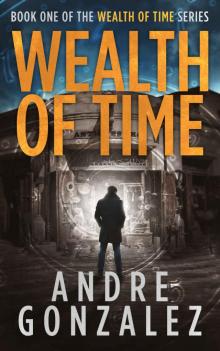 Wealth of Time
Wealth of Time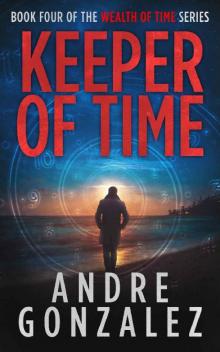 Keeper of Time (Wealth of Time Series, Book 4)
Keeper of Time (Wealth of Time Series, Book 4)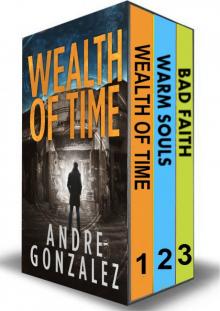 Wealth of Time Series Boxset
Wealth of Time Series Boxset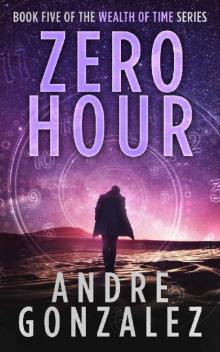 Zero Hour (Wealth of Time Series, Book 5)
Zero Hour (Wealth of Time Series, Book 5)![[Wealth of Time 01.0] Wealth of Time Read online](http://i1.bookreadfree.com/08/wealth_of_time_01_0_wealth_of_time_preview.jpg) [Wealth of Time 01.0] Wealth of Time
[Wealth of Time 01.0] Wealth of Time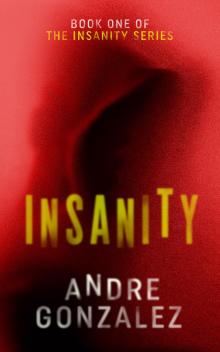 Insanity, #1
Insanity, #1 Snowball
Snowball Followed East
Followed East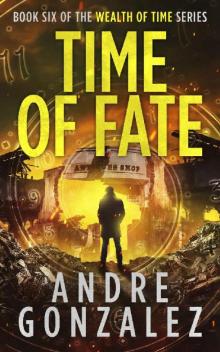 Time of Fate (Wealth of Time Series #6)
Time of Fate (Wealth of Time Series #6)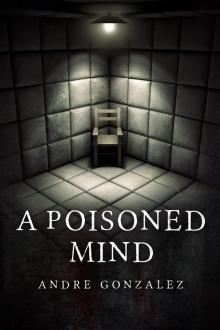 A Poisoned Mind
A Poisoned Mind The Burden
The Burden The Burden (Insanity Series, Book 2)
The Burden (Insanity Series, Book 2)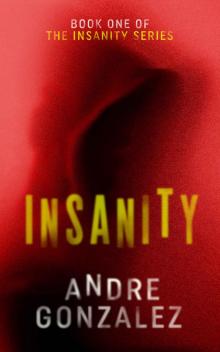 Insanity (Insanity Series, Book 1)
Insanity (Insanity Series, Book 1)